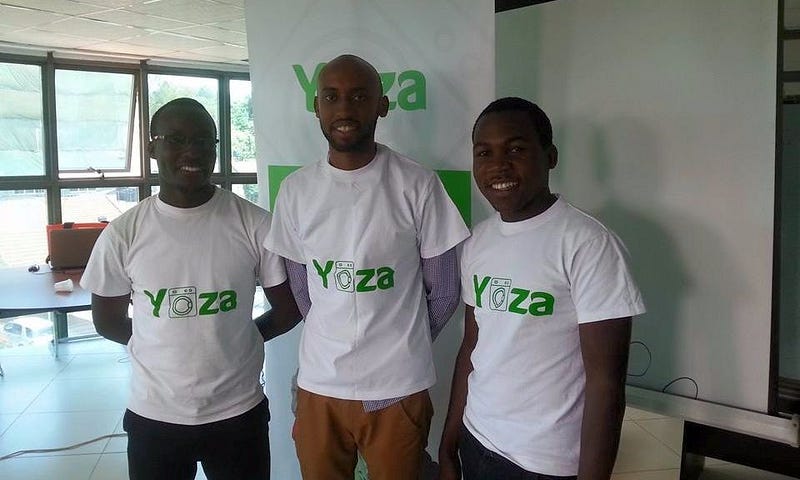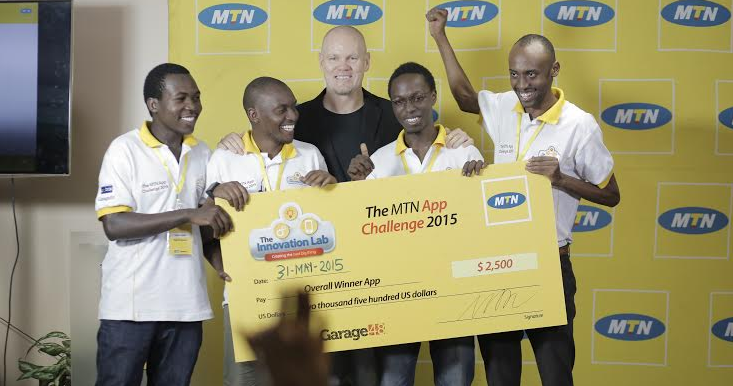I have thought long and hard about opening up on what happened to Yoza App. I have been asked by very many people if the service is still up and why we gave up so fast.
“Resource allocation and innovation are 2 sides of the same coin.” - Clayton M. Christensen (The Innovator’s Dilemma)
The only reason I have decided on sharing this is that every day I see very many founders struggle in silence. We come up with good ideas and start executing on them. We get a few customers and setup our social pages, then invite a few of our friends and family to try our products. We run around talking to the media to talk about our products mostly to get the word out and attract new customers.
A few months go by and bills start piling up, co-founders get side gigs to keep the business going, the focus is obviously lost and motivation starts to go down. Your friends stop using your product, your site goes down and you are in this constant cycle of putting out fires.
STOP!!!
[caption id="" align="alignnone" width="800"] Yoza Founders Solomon (L), Nick (C), Isaac (R)[/caption]
Yoza Founders Solomon (L), Nick (C), Isaac (R)[/caption]
The beginning
I must say that this wasn’t us. We were dealt a somewhat good hand and to understand the fate of Yoza, I have to take you back to where everything started. This wasn’t my idea Solomon Kitumba pitched an idea of Village laundry service and if you have read Eric Ries’s The Lean Startup he talks about how laundry was done in Indian villages by putting consumer grade laundry machines at the back of a pickup truck packed at different street corner.
I had just moved from an upcountry university to start my life in the Kampala and laundry was the one problem I had every weekend. I shared the problem Solomon had so I invested some money for an experiment - “Who does your laundry?” If we asked enough people who do their laundry, we would have a database of washers. We convinced my long-term partner in crime Kyuka Isaac to join as the 3rd co-founder and we were on our way to disrupt the laundry and dry cleaning service industry.
MTN Partnership
We entered the idea into MTN app challenge and won. We invested our spoils into acquiring customers, washers and building an app and websites where people would find us. We aggressively recruited 150 washers from 25 locations in Kampala, trained them and made them available for work.
[caption id="" align="alignnone" width="733"] After winning MTN App Challenge.[/caption]
After winning MTN App Challenge.[/caption]
Partnering with MTN opened us up to very many opportunities like media coverage and it also gave our brand credibility as people wanted to try “this app that won the MTN challenge”.
Working closely with the mobile money team and being one of the first apps to have direct integration with mobile money APIs was/is by far the best thing that happened to our product.
Minimum viable product
We launched the app to the public August 2015 and on the first weekend, we saw a lot of app installs on Saturday morning and a lot of app uninstalls in the week after. This pattern continued for a couple of weeks and we asked a few customers why they had uninstalled our app.
“The app is so good that after I get the washer’s number, I don’t need you guys.”
This however like most entrepreneurs tell themselves was a very good problem. Early days when you selected a location we would give you a list of washers in that area and when you selected someone you would directly give them a call in the app.
 An early version of the product. [Photo Credit: Techweez][/caption]
An early version of the product. [Photo Credit: Techweez][/caption]This design was mainly because of the smartphone-feature phone technology divide between our customers and the washers.
Subscription Model
There was/is one common denominator among the people who installed and uninstalled the product. They all hated doing their laundry. This meant that they did laundry at least 3–4 times in a month.
Based changed our revenue model to a monthly basis for customers and transactional the basis for the washers.
The customers would try the service for the first 2 weeks for free and if they liked the service, they would subscribe for the next 3 months because they are going to do the laundry anyway why not pay upfront.
This saved us the trouble of spending so much to acquire customers who would leave the weekend after their first install and it also secured traffic for the washers because we could guarantee them to work for at least 3 months. We also saw more customer retention and made back our cost of acquisition with a profit.
This was working and all we had to do is go out and get more customers like these. The trade-off we made here was to resort to doing the work ourselves and manually handle the clients one by one as they signed up for the service. We were talking to every customer and got first-hand feedback and with the team doing the work, we could handle about 10 new customers each on a weekend.
What could go wrong?
What follows in part 2 is the fun part before sh*t goes crazy in part 3. This post first appeared on Nicholas' Medium Account.
